
Seeing Ocado’s cutting-edge factory razed to the ground was genuinely shocking. On the morning that CEO Tim Steiner announced the launch of Ocado Zoom, a fire broke out at Ocado’s 240,000 sq ft automated Andover warehouse. An early announcement by Ocado said it had started on one of the grid platforms used by its army of silent robots and damaged part of it, but no one was injured.
The situation appeared to be under control. It wasn’t. The building, with its cuboid robots whizzing round a fully automated grid like swarming bees – was not meant for humans, and that included firefighters, who struggled to gain access to its highly automated nooks and crannies. Overnight the fire spread. A section of roof collapse. By day three there was no Ocado Andover warehouse to speak of.
Thankfully, no-one was hurt, though local residents had to be evacuated at one stage. The fire also resulted in a 16% fall in Ocado’s share price over those three days, and reduced Ocado’s delivery capacity by 65,000 orders a week.
Remarkably, however, Ocado’s service wasn’t as badly affected as one might have expected. A spoke – one of Ocado’s smaller warehouses served by its full-size fulfilment centres – was quickly set up at Andover, distributing orders picked at the Erith CFC. And though Ocado agreed to loosen its contract with Morrisons as a further interim measure for the next two years, crucially, it was able to reassure its international partners that there were no inherent safety issues with the overall system (Steiner later revealed that some “decorative plastic” that had been “unhelpful in the spreading of the fire” had been stripped off the robots). Within two months it had signed its fifth international partnership, with Australian retail giant Coles, and weeks later, went on to form a £750m joint venture with Marks & Spencer. And the share price has more than bounced back.
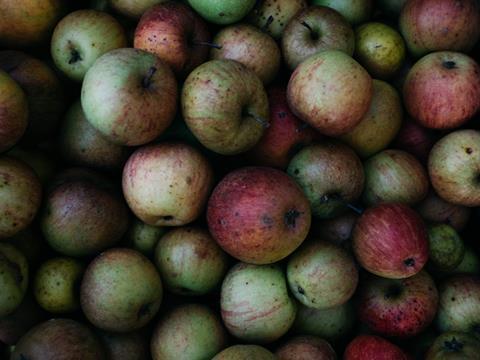
We all know modern slavery is a risk in some international supply chains. Just look at Tesco, which recently had to pull Christmas cards from sale and suspend a Chinese supplier after a six-year old girl found a note inside one from inmates in Shanghai Qingpu prison claiming they were being forced to work against their will.
But we like to think modern slavery is less common in Britain. So it was a huge shock when eight members of a human trafficking gang were jailed in July after luring hundreds of victims to the UK and forcing them to work on farms supplying major supermarkets.
In what was described by the judge as “the largest conspiracy of its type ever known”, the group of five men and three women lured vulnerable people – including the homeless, ex-prisoners and alcoholics – with the promise of employment, money and accommodation. On arriving in the UK, they were made to work long hours on farms, rubbish recycling centres and turkey gutting factories and paid as little as £20 per week by the traffickers.
They were housed in vermin-infested accomodation and fed out-of-date food by the gang, which made an estimated £2million between June 2012 and October 2017 on the back of their victims’ suffering, it emerged.
None of the farms involved were aware the workers had been trafficked or were being abused. Police said the gang had an insider working for a Worcester employment agency, who advised the gang-masters on how to train victims on what to say to avoid suspicion.
The “most ambitious, extensive and prolific” modern day slavery network ever exposed in the UK was only uncovered after two victims broke free from their captors and went to slavery charity Hope for Justice for help.
Sadly, while this was the biggest case of its kind to come to light, it wasn’t an isolated incident. Modern slavery and human trafficking is more prevalent in Britain than most consumers – and many businesses – realise, Marc Stanton, director of the Slave-Free Alliance, a not-for-profit membership scheme run by charity Hope for Justice, told The Grocer.
Indeed – in an even more shocking incident just four months later, 39 migrants from Vietnam were found dead in the back of a refrigerated trailer attached to a lorry in an industrial park in Grays, Essex.
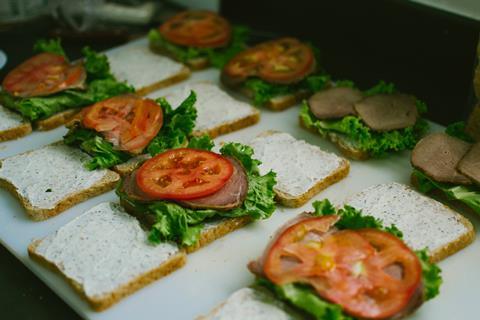
The tragic death of six hospital patients in a UK-wide listeria outbreak linked to sandwiches and salads sent shockwaves through the chilled foods sector. Especially when it emerged the dangers of serving chilled food to seriously ill patients had been highlighted five years previously in a FSA report.
The outbreak was initially traced back to sandwich producer The Good Food Chain, which was forced to suspend production for four weeks during an FSA investigation, and eventually fell into liquidation. Despite being cleared of any wrongdoing by the FSA, the impact on the company had been “too great for the business to remain viable”, said owner and founder Martyn Corfield.
The FSA’s attention subsequently turned to “suppliers further up the food supply chain”, with The Good Food Chain’s former supplier North Country Cooked Meats also closed pending investigation after the listeria strain was found in its sliced meat products.
However, industry experts warned poor temperature controls in hospitals might be to blame. They pointed to a 2014 FSA report, which found food safety at ward level was “repeatedly a contributory factor” in hospital outbreaks of listeria. There was evidence of serious breaches in cold chain integrity at the hospitals involved in listeria outbreaks, including sandwiches being left outside after delivery rather than being put straight into fridges, inappropriate storage of food in patients’ bedside lockers and chilled display units in coffee shops operating at above 8°C, the report warned.
In the wake of the scandal, health secretary Matt Hancock ordered a “root and branch” review of NHS food. There has, however, been no update on its progress since it was launched in August 2020, suggesting it might have fallen by the Brexit wayside. In the meantime, vulnerable patients are still being served sandwiches in hospitals.
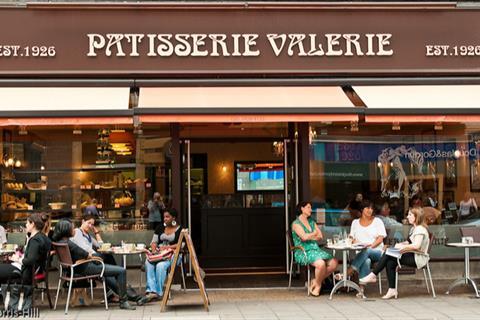
In October 2018 a £20m fraud-related black hole opened up in the accounts of Patisserie Valerie, leaving the cafe chain fighting for its future at the start of the year – but it was 2019 when the scale of the shortfall was laid bare. In January, the chain appointed KPMG as administrators and immediately shuttered almost 50 stores and a further 25 concessions with the loss of 920 jobs. A report by the administrators subsequently found that the black hole was in fact as much as £94m.
The chain was saved by a £10m MBO backed by Irish private equity firm Causeway. But the drama didn’t end there, with a management buy-in turnaround team that backed and led the business through the rescue soon dispensed with by the new owners. A further 50-odd cafes have since been closed, leaving just 73 remaining, and further closures are possible pending rent reviews, while four bakeries have been shuttered.
Meanwhile, five arrests were made in June, as the Serious Fraud Office continues its investigation into the collapse of Patisserie, with a trial expected later this year.
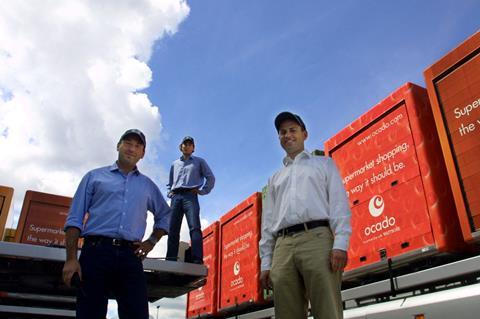
It’s the story that keeps giving. First, a bombshell announcement from Waitrose that it had struck a deal with Today Development Partners, a then-unknown company headed up by Jonathan Faiman – the same Jonathan Faiman that co-founded Ocado with the company’s CEO Tim Steiner in 2000.
It would help Waitrose triple its online revenues in three years, and provide the answer it needed to being replaced on Ocado with M&S.
TDP was mysteriously described as a “new organisation that uses automation”. It didn’t have an office, and the announcement looked hurried out.
Perhaps it was. On 15 May – the day before the announcement – Jonathan Hillary, Ocado’s logistics development and engineering director, had handed in his resignation to work instead for Faiman, it was later claimed.
Months followed in which Faiman said not a word to the press.
Then, in September, a second bombshell: Ocado was suing Faiman and his company for “corporate espionage”.
According to the claims, before reaching an agreement with Waitrose, Faiman had held discussions over an online operation with M&S, in which he had indicated he had up-to-date confidential information about Ocado’s business. The meetings were secret – Faiman is alleged to have requested a room without windows on one occasion, and an NDA was signed.
But hope of maintaining that secrecy must have been doomed the moment Ocado and M&S agreed their 50/50 joint venture in February 2019.
Ocado learned of the discussions and obtained search orders against TDP and Faiman, which, when executed in July, recovered “highly confidential” Ocado documents Faiman had “no legitimate means of acquiring”, according to the claims.
It was alleged that Faiman was on his way to a meeting with Waitrose at the time. It may have explained why, days before the court claims emerged, Waitrose had announced the end of the partnership.
Faiman is countersuing Ocado for “hundreds of millions” over the loss of the Waitrose deal. He claims the information Ocado used to obtain the search orders was wrongly obtained in breach of the NDA.
His defence papers contain yet more intrigue, including claims that M&S CEO Steve Rowe discussed using “burner phones” (‘pay-as-you-go’ phones without a named account) to avoid detection by Ocado, something M&S denies.
The case continues to escalate, with Ocado last week seeking to begin contempt of court proceedings against Faiman’s solicitor, Raymond McKeeve. If the court grants permission for the case to proceed, it could result in criminal charges against one of the City’s most senior lawyers.
McKeeve is alleged to have instructed TDP’s IT technician to “burn” the contents of a WhatsApp-style messaging system used by Hillary, Faiman and himself.
McKeeve denies interfering with justice and has asked for the decision to be deferred until after the trial in the proceedings against Faiman and Hillary. With that not expected to take place until 2021, this is a story sure to keep giving for some time yet.

Much talk in the industry has been about whether prime minister Boris Johnson will put any further plans for what he called “stealth sin taxes” into the shredding machine, considering his outspoken comments in the Tory election contest.
But the real sin is surely what has happened to the original tax, the soft drinks sugar levy. In August The Grocer revealed there were fears that the £1bn-plus expected to be raised from the sugar levy over the next four years would not all be spent on children’s health. In September we revealed that chancellor Sajid Javid and his Treasury beancounters had effectively limited the fund to a single year, enabling the Treasury to pocket the taxes raised through the levy as the department confirmed that earlier commitments to ringfence the money raised by the levy to help tackle the obesity crisis in schools had been quietly dropped.
Forecast to raise £340m in 2020-1, the prospect of the sugar tax disappearing into the Treasury’s coffers appeared was confirmed as the review failed to contain any commitment to ringfence the income for spending on programmes to improve children’s health and food. The move attracted fury from health campaigners but was a great “I told you so” moment for industry bosses, who always claimed the tax was a financial raid on industry, rather than a serious effort to help kids’ health.
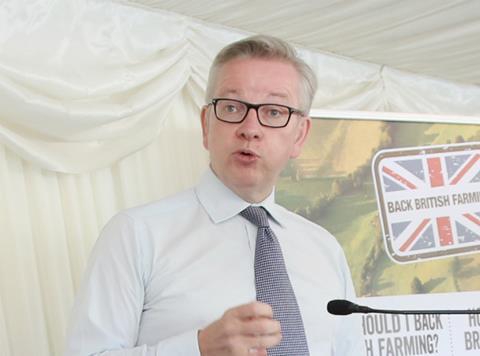
It was not so much the predictions of food shortages and chaos at Dover that was such a shock amid the revelations of the Operation Yellowhammer fiasco.
Industry leaders had been predicting for at least two years that a No Deal Brexit would plunge the major ports and the food industry’s “just in time” supply chain into crisis.
No, what was more shocking than the document itself was the way ministers, led by Michael Gove, tried to deny it had any substance.
The former Defra boss, turned Brexit tsar, Gove, was supposed to be the friend of the food industry. He had certainly given every impression that he understood its concerns as a receptive secretary of state. But after rehabilitating himself and talking a good game at Defra about the dangers of Brexit and a No Deal outcome, his obfuscation and lying over Operation Yellowhammer was blatant. “Everyone will have the food they need” was among the most noteworthy (and downright sinister) quotes of the year but he had also claimed that the report, first revealed in leaks to The Sunday Times, was old, which turned out not to be true either.
When it was finally published in September, the document, dated August (ancient history in Gove talk) , set out government fears of food shortages which would reduce availability and choice of products and l increases price, which could hit vulnerable groups.
Gove stressed the report was a “reasonable worst-case scenario” but that did not stop the government expecting retailers and suppliers to spend millions stockpiling and facing a logistics nightmare to get ready for no less than three No Deal deadlines.

The announcement by Tesco CEO Dave Lewis, in October, that he is to step down as boss of the UK’s biggest retailer next year was huge industry news of course, but not necessarily the biggest of shocks.
Having won almost universal respect from staff, suppliers and the City for his turnaround of the Tesco tanker, Lewis had been rumoured to be lined up for new challenges for some time and in fact later admitted he had agreed to stay on at Tesco for longer than he originally hoped.
The biggest bombshell, however, came in the form of his replacement. With Tesco chairman John Allan claiming internal candidates like Jason Tarry, Andrew Yaxley and Tony Hoggett were too inexperienced for the top role, he instead turned to a relative unknown in the shape of former Walgreens Boots Alliance boss Ken Murphy.
The Irishman may be a veteran of 15 years at Boots, and with experience in retail dating back to being on the tills as a 15-year-old, but he will arrive in the summer without any experience of UK grocery and has never run a public company before, having last been commercial director before moving his family back to the UK.
Those who know him say Murphy is an intelligent and charismatic leader, but there is no question his appointment is something of a gamble. Lewis, who we must also remember was criticised for having a lack of retail experience when he was parachuted in, nevertheless arrived at a time when the only way was up for Tesco and with a handy cupboard full of skeletons ripe for clearance. Murphy arrives with Tesco’s reputation salvaged but with market conditions and the threat from the discounters as fierce as ever and all eyes will be on him to see if he can inheri Lewis’ Midas touch.
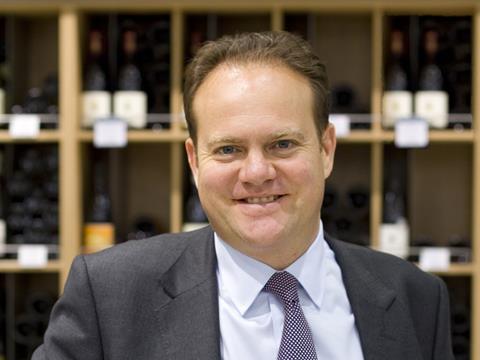
One of the most surprising departures of 2019 was announced in October when the John Lewis Partnership unveiled its plan to effectively merge its John Lewis and Waitrose businesses.
Along with the merger plans came news that Waitrose MD Rob Collins would leave the business in February after 26 years with the retailer he first joined as a graduate trainee. The most surprising element of the whole thing was that Collins had been a key driving force behind the Future Partnership plans but had not come up with a role for himself in the vision of the future.
“I have been closely involved in the planning of the FP programme and I’m very confident the new structure is the right one for the future,” said Collins magnanimously. “It will enable the business to continue its long history of successfully adapting to changing times. There isn’t a role in the new structure that I believe is right for me personally, so I have decided to leave at the end of January.”
Outgoing JLP chairman Charlie Mayfield heaped praise on Collins at the time. “Rob has been one of the central architects of our new plans and it’s a testament to his character that his commitment to the right course for the Partnership has not wavered, despite his own role being removed in the new structure,” he said.
Going forward the business will be led by executive chairman Sharon White who has no experience of either the retail or supplier side of grocery. It will be interesting to see if she will come to regret not having an experienced operator like Collins in her team.

Worse than Brexit. That was the message from a vast swathe of suppliers, spanning categories from scotch to shortbread. Trump’s trade wars with China caused carnage, but his trade dispute with the EU over its support for Airbus was no less disgraceful. Launched in October, the message was clear: these tariffs were designed to cause the utmost damage, putting jobs and businesses at risk which had nothing to do with Airbus in the first place – and not a single thought spared for its casualties. It was a truly callous move, lacking in dignity or common sense. But of course, that’s par for the course with this commander-in-chief.
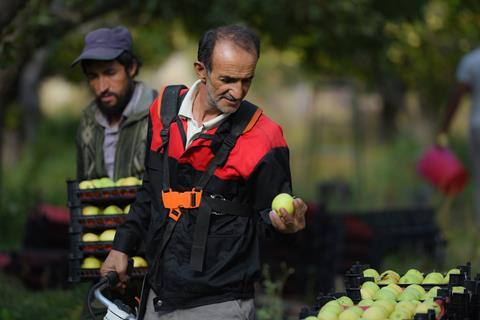
Labour. It’s been one of the industry’s biggest concerns ahead of Brexit. So it was a big shock when newly installed home secretary Priti Patel in August pledged to end free movement immediately in the event of a no-deal on 31 October.
Patel’s abrupt plan was immediately rounded upon by opposition MPs, who pointed out EU nationals living in the UK legally, but away from the country at the end of October, could end up being refused entry to the UK.
Having previously receiving assurances from Theresa May’s government that EU nationals arriving in the UK before Brexit would be given a three-year temporary leave to remain, growers and food industry recruiters were also (justifiably) enraged.
“We are beyond bamboozled because we had reassurances under Theresa May’s administration that the transitional period would pretty much happen come what may,” said director of Hops Labour Solutions, John Hardman.
“It is potentially catastrophic for horticulture because we do not have a scaled-up fully functioning seasonal workers scheme, we have a pilot (of 2,500 people).”
With growers alone needing in excess of 80,000 migrant workers each year, British Growers Association CEO Jack Ward warned crops would be left rotting in the ground, while NFU horticulture and potatoes board chair Ali Capper said the government had “lost its marbles”.
By the start of September, Patel was forced to perform a somewhat embarassing U-turn following repeated warnings from lawyers and policymakers that the proposals would be impossible to implement in such a short space of time and could be open to legal challenge.
The government has since pledged to quadruple the number of workers on the Seasonal Agricultural Workers Scheme pilot to 10,000 in its election manifesto. However, with thousands of tonnes of crops already left to rot this autumn due to labour shortages, the issue will likely continue to dominate the headlines in 2020.
Speaking at the Tory party conference in October, Patel said the government wanted an immigration system that welcomed the “leading people in their fields”. Whether it will ensure there are enough workers in fields is another matter.
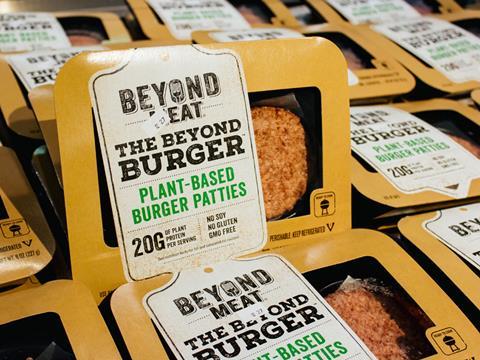
No-one does hype like the Americans, but even by its standards, the IPO of Beyond Meat was absurd. No question its technology is clever – delivering vegan burgers, sausages and other meat cuts with the texture of meat. And early sales and orders have been strong. But if the initial $xxbn valuation seemed toppy, what followed was beyond a joke, with the share price soaring to $XXbn by DATE. That’s a bigger valuation than EXAMPLES. XXX months later, however, the bubble burst, and the share price crashed to only $XXbn AS BLA BLA BLA.
Beyond Meat
2019 was the year meatless went mainstream.
The listing of US plant-based meat player Beyond Meat was the City story of the summer, as its meteoric share price rise valued the company at a staggering $14bn at its peak.
Listing at $25 per share back in May, the stock surged on debt as investors scrambled for exposure to the high growth sector, opening its first day of trading $46 and ending its first day at $72.95.
Shares in the meat substitute manufacturer went from strength to strength, peaking at $239.71 in July – a rise of almost 860%.
Investors were seduced by its surging sales, with revenues set to more than treble year-on-year to around $270m in 2019 and momentum across retail and food service channels, including partnerships with McDonald’s and Dunkin’ Brands.
The stock taps into the rapidly growing consumer shift to plant-based protein from people more concerned with healthier and environmentally responsible foods, with the market for plant-based said to be worth up to $100bn in just 15 years’ time.
However, the momentum has waned for Beyond Meat in recent months, amid concerns competition is hotting up in the sector. This year a number bigger players with more financial muscle than Beyond Meat – including Nestlé, Kellogg’s and Tyson Foods – have moved into the space, potentially limiting Beyond Meat’s growth potential.
Also, doubts have begun to emerge about the early results of its much-hyped trial with McDonald’s in North America, potentially limited to scope for mass rollout across the fast food giant’s restaurants.
The company’s shares have fallen back to $77.30 from their summer peak – though early investors are still sitting on a profit of 210% on its initial IPO price.
Also, Beyond Meat posted its first quarterly profit in October as sales jumped 250%, suggesting the company remains well placed to take advantage of the continued surge in demand without burning through a bottomless pit of cash to fund growth.
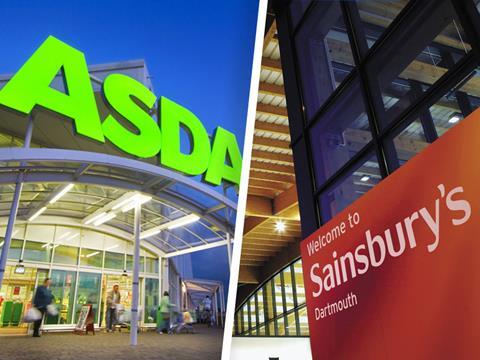
Sorry. This just wasn’t a bombshell. On the day the plans leaked out, we didn’t give it much of a chance.
Last Christmas (which perhaps is a suitably festive number for Mike Coupe’s repertoire) Sainsbury’s was busy taking the CMA to judicial review moaning it needed more time to respond to concerns over its proposed mega merger with Asda.
Meanwhile The Grocer was revealed an FDF poll showing more than 90% of suppliers through the del would have a negative impact to their businesses.
Yet the CMA’s decision no throw out the plans, confirmed in April, was still headline news.
It left Coupe raging and, like Asda, looking for a plan B but in retrospect the merger had been dogged with disaster from the beginning.
Being captured singing “we’re in the money” as he prepared to face the TV cameras to explain how the deal would benefit Sainsbury’s and Asda, was a start for which the Sainsbury’s boss never really recovered. He went on to suffer a mauling at the hands of Neil parish and MPs investigating the merger and then an even bigger one from the competition body itself.
Sainsbury’s biggest mistake- surely reading too much in to the CMA’s decision to allow the Tesco/ Booker merger along with a misguided assumption that the competition authorities would see he rise of the discounters as putting them on an equal footing with the supermarkets when it came to competition.


